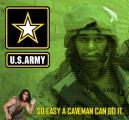Afghanistan is a whole new level of difficulty -- at least one order of magnitude. Iraq is going well now in large part (in my opinion) because they had a history of civil society (starting sometime after the British forced the Shia tribes to settle and before 1920). The Sunni tribes had to balance against the Hashemites who the British put into power and thus, civil society developed to counter the political threat from the Hashemites, the religious threat from the Shia and the economic threat from the chalabis in Mosul and the other economic powers in Basra.
Afghanistan has never had that. Only in the cities that were waypoints on the trade routes did substantial non-tribal and non-religious markets exist. I think the US Treasury Dept had a small study or survey (2005 or '06?) that (while it may have been too small to be taken as broadly representative) determined that the presence of a hawalla center was the primary indicator of market-based power structures over tribal-based patronage and the associated hierarchical dependencies. That includes only the cities that had thriving markets that dealt not only in goods and services, but currency exchanges as well. Put another way, the places where people trusted other people with their money (both for credit and for capital savings) were the only places that were able to overcome the tribalism. This only happened in the cities. Elsewhere, the rural populations (the other 85%+/- of the overall population) are still stuck in tribalist hierarchies and the persistent warrior economy.
They did not address other factors since they were only looking at the presence or lack of regulated financial markets. The other factor I think is important is the enforced democracy, which forces people to choose parties. These parties will not meet the poeple's needs, but, as people create wealth and develop their private property tradition, they will see reason to step out of the their tribes to found new parties. These grass-roots parties will actually represent them, rather than the Big Men or Chiefs that rule their lives now. That transition will be violent -- very violent -- as the Big Men and Chiefs fight to maintain the status quo and the people muster together to fight back because they have wealth and private property at stake. I don't think that will happen for at least a generation, and only then if the youth get Western liberal educations.
I say Western because Middle and Far Eastern societies are so exclusive and their educational sectors' capabilities vary so much. India certainly won't take on that burden, and the SE Asian societies can not. Well, maybe Indonesia or the Philippines, with large subsidies and Australian/American help. Korea is able but is it willing?? But that is getting way outside my knowledge realm.
So, I think that the social balancing game is the best hope for civil society to grow and long term success in Afghanistan. We are starting to see that in the threat-balancing aspect, but the tribes have played that game for eons and are prepared to continue ad infinitum. To break the reinforcing cycle of violence and the balancing cycles of threats and alliances, there must be alternative political and economic developments that break those loops and give people something to invest in besides paying homage to their cantankerous old tribal chief/council or simply maintaining their warrior economy in the fight against the Taliban, the HiG, the US, the Karzai government, and each other.
But that's just me.





 "A Sherman can give you a very nice... edge."- Oddball,
"A Sherman can give you a very nice... edge."- Oddball, 

 ) made was focusing too much on speed over quality when launching the initial SSR programs.
) made was focusing too much on speed over quality when launching the initial SSR programs.










Bookmarks